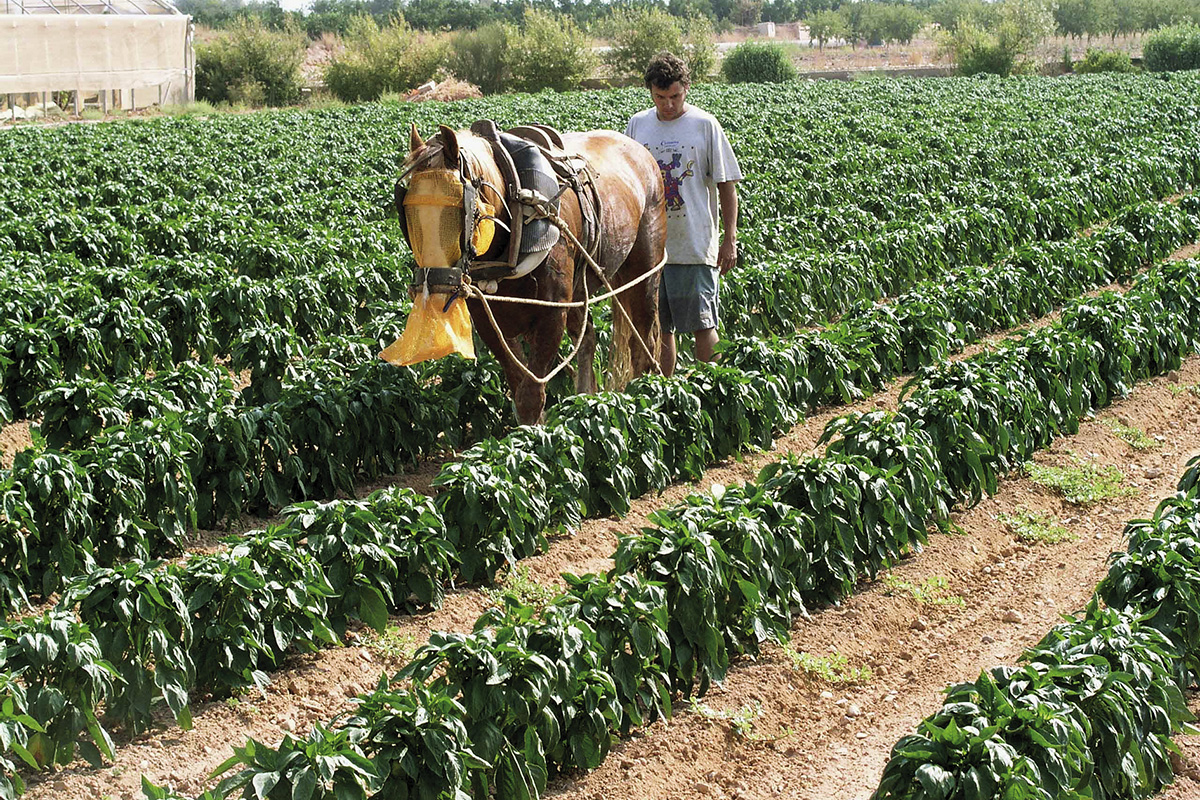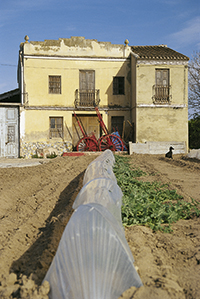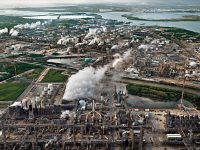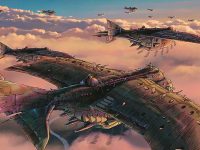
Very few activities have been so attached to the development of our society like agriculture has. All along history, the world of agriculture has been an essential piece in the social and economic changes of the region of Valencia. For centuries, our ancestors have selected and used vegetables and animals for their own feeding and for their communities, in a Mediterranean ecosystem, within the laws of ecology, adapting to the environment and modifying it. There has been a constant activity to domesticate, occupy and live in the environment, which, on top of being cumulative, has worked in relation to the social and economic structures and the technological level of the time.
Agriculture’s main function, which has always been the production of food, has changed very quickly. In the last fifty years, ever since the general imposition of the industrial agriculture model, agriculture has gone form being an activity which gave work to an important part of the population and which supported the economy, to being a rather unimportant activity, economically and socially. Even so, agriculture is still very important, since it manages a great deal of the land and waters, and creates a unique landscape. As agriculture weakens, a transforming industry, distributor of food, has strengthened considerably.
The acceleration has been very important since the application of the scientific method for agricultural improvement. But it was from the WWII onwards when the new agricultural technologies, exemplified in the Green Revolution, allowed the integration of the agricultural and livestock sector in the new agro-food industry.

Alqueria of the Bercoquero, in Meliana (Horta Nord). / © Martí Domínguez
Where the current model leads to…
Agriculture and stockbreeding don’t feed the population anymore; it is the agro industry inside the food chain which does it. Nowadays, the agriculture and livestock sector weakens gradually inside the food industry. Agriculture is at a disadvantage in front of other elements of the food management chain. They are not the ones to make strategic decisions, in fact, their intervention in them is very weak, but they do have to take the greater economic risks (classical biological production linked to climatic and agronomic phenomena) and take very little profit out of it.
With the vertical integration, common of the agro-food system, the leading company sets the strategy for the rest of the food chain, and right now the leading companies are the commercial distributors.
One of the major revolutions experienced by the food industry in the last decades is the change in the distribution of the food. These companies, taking advantage of the economy of scales, constantly increase their control. First, they concentrate sales, thus limiting the number of suppliers and forcing them to be big. Then, they set the production protocols, with which they determine the work conditions of other companies in all of their phases. Also, the creation of their own brands makes other industrial and commercial traditional companies to decrease their value. Finally, food companies go into agricultural production only for their profit. Thus, we find wineries with their own vineyards, greenhouse owner exporters and extensive citrus groves, etc. Food chains are determining a new organisation in the food system.
Agricultural businessmen have to meet the requirements to offer the demanded food, and expect the working of the system to reward them. There are some people capable of organising themselves, controlling the farming costs and adapting themselves to the demand; however, there are many others who can’t. The producer or agricultural businessman, or part-time farmers or smallholders (there are many kinds in the Valencian country land) who are not capable of keeping up with the evolution of the sector, will remain outside the conventional market.





